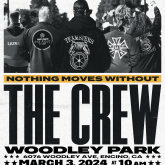Los Angeles Times
By: Richard Verrier / June 30, 2010 / 6:00 am
Call it the Happy Cow bill.
The California Legislature is chewing over a measure that would require commercials promoting state products, and that are financed with public funds, to be produced in California.
The California Assembly voted to approve the bill last month and this week it will be taken up by a Senate committee, with a vote by the full Senate expected in August.Assemblyman Ted W. Lieu (D- Torrance) introduced the bill in response to the outcry over a decision by the California Milk Advisory board last year to shoot part of its new series of 10 California “Happy Cows” TV commercials in Auckland, New Zealand, to take advantage of that country’s low production costs.
“That we were using public funds to promote a California product and have that filmed in New Zealand just seemed to be wrong on so many levels,” said Lieu, adding that the legislation would “help retain and keep jobs in California.”
The board, which promotes the state’s dairy farmers and is overseen by the California Department of Food and Agriculture, has been running TV ads promoting California’s “Happy Cows” for nearly a decade. The latest series featured New Zealand cows representing bovines from around the world auditioning to be the next California “Happy Cow.”
Milk board officials at the time defended the action, saying they were able to save money by filming in New Zealand and that the shoot only represented a “minor portion of the production.” They also said that any cows identified as California-bred in the ad would be actual California cows.
But the New Zealand shoot, first reported in the Los Angeles Times, touched off a firestorm in the production community, which has been reeling from the migration of films and TV shows to other states and countries. The state approved a film tax credit last year to stem the exodus of production. However, the credit does not apply to commercials.
Among the bill’s backers is the Teamsters union, whose Hollywood crew members have been hard hit by so-called runaway production.
“We’re reeling from incentives offered elsewhere,” said Ed Duffy, business agent for Teamsters Local 399, which represents location managers, studio drivers and casting directors. “It seems to be a no-brainer that if something is promoting California products, and it’s using state money, it should be filmed in California.” TO READ MORE CLICK HERE./a>

